
矩池云 专注于人工智能领域的云服务商 https://matpool.com/
Sharing and Discussion of Multidisciplinary Artificial Intelligence Teaching|Intelligence·Zhiyuan Artificial Intelligence Teaching Seminar in Colleges and Universities
Recently, the "Intelligence-Zhiyuan Artificial Intelligence Teaching Seminar in Colleges and Universities", hosted by Guanghua School of Management of Peking University and co-organized by Juchiyun, was held online. The conference attracted more than 500 teachers, students and engineers to participate. This seminar takes the teaching of interdisciplinary artificial intelligence courses as the background, discusses the teaching experience and challenges encountered in the establishment of AI courses in different institutions, and disassembles and discusses the difficulties encountered by students in the practice of artificial intelligence courses.
This seminar invited many famous professors and experts from universities and enterprises such as Peking University, Fudan University, Renmin University of China, Shanghai University of Finance and Economics, Central University of Finance and Economics, and Juchiyun to report. The guests and audience shared their latest teaching practices and conducted in-depth discussions with the online audience.
The seminar started with the opening speech by Wang Hansheng, professor and head of the Department of Business Statistics and Econometrics, Guanghua School of Management, Peking University. He believes that big data and artificial intelligence are important strategies established by the country. College teachers hope to closely follow the strategy to upgrade teaching content and cultivate excellent talents for the society. However, for the learning needs of different disciplines, curriculum framework content construction, knowledge system and practice The construction of the system is worth discussing together. Pan Rui, associate professor of the School of Statistics and Mathematics, Central University of Finance and Economics, presided over the seminar.
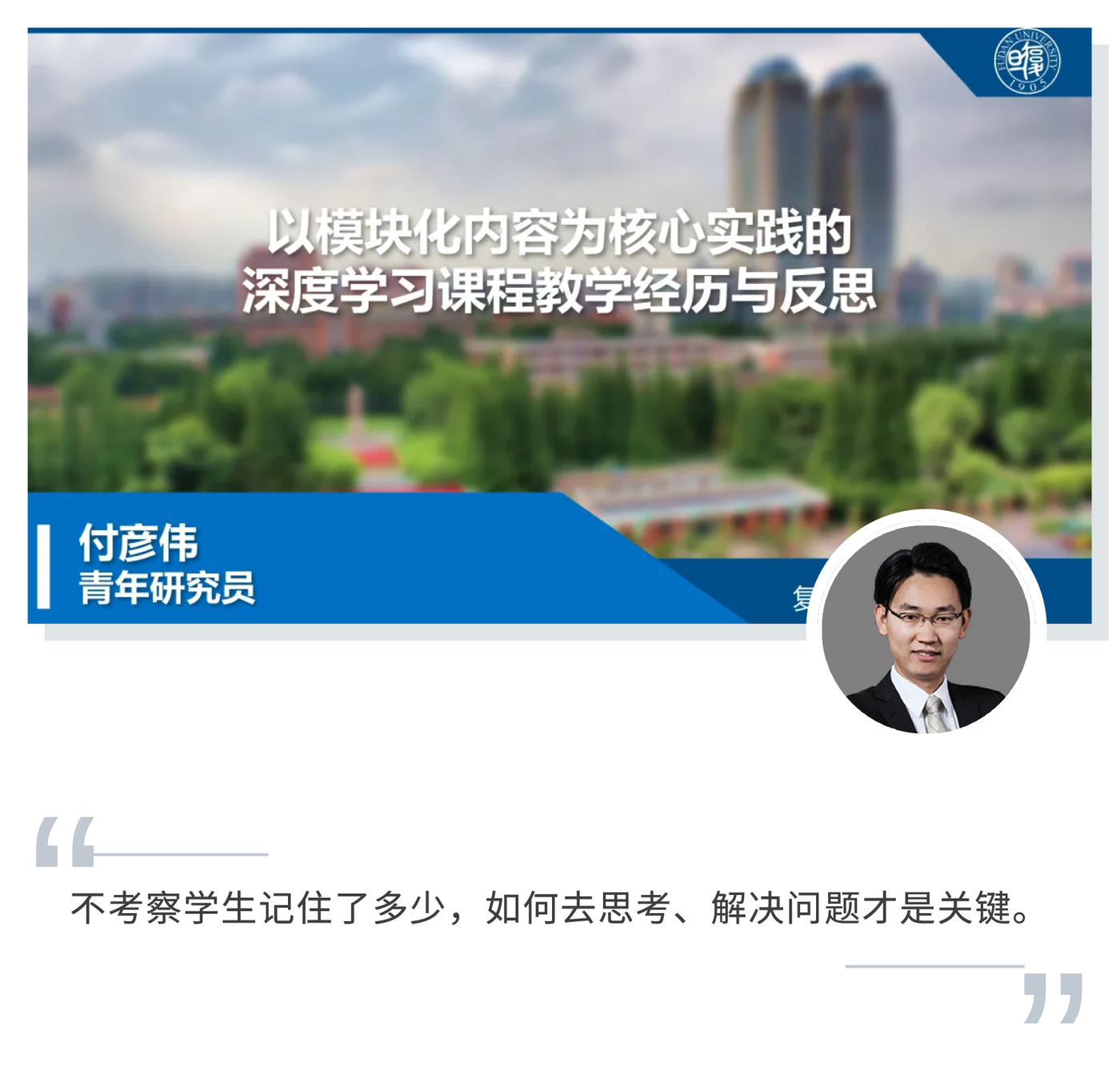
The first report of the seminar was from Fu Yanwei, a young researcher from the School of Big Data, Fudan University.
Fu Yanwei believes that if teachers only list teaching materials, popular deep learning frameworks and modules for teaching, it will be difficult for students to improve their learning and thinking. The goal and key point of the course is to cultivate students' ability to deal with and solve practical big data problems with the thinking method of neural network and deep learning.
Therefore, in terms of curriculum design, he put forward three principles of curriculum design: design knowledge modules based on actual scenarios; focus on the design ideas of each innovative module in the structural change of deep learning; balance the ratio of academic frontier and classic content, and encourage students to carry out Frontier technology exploration.
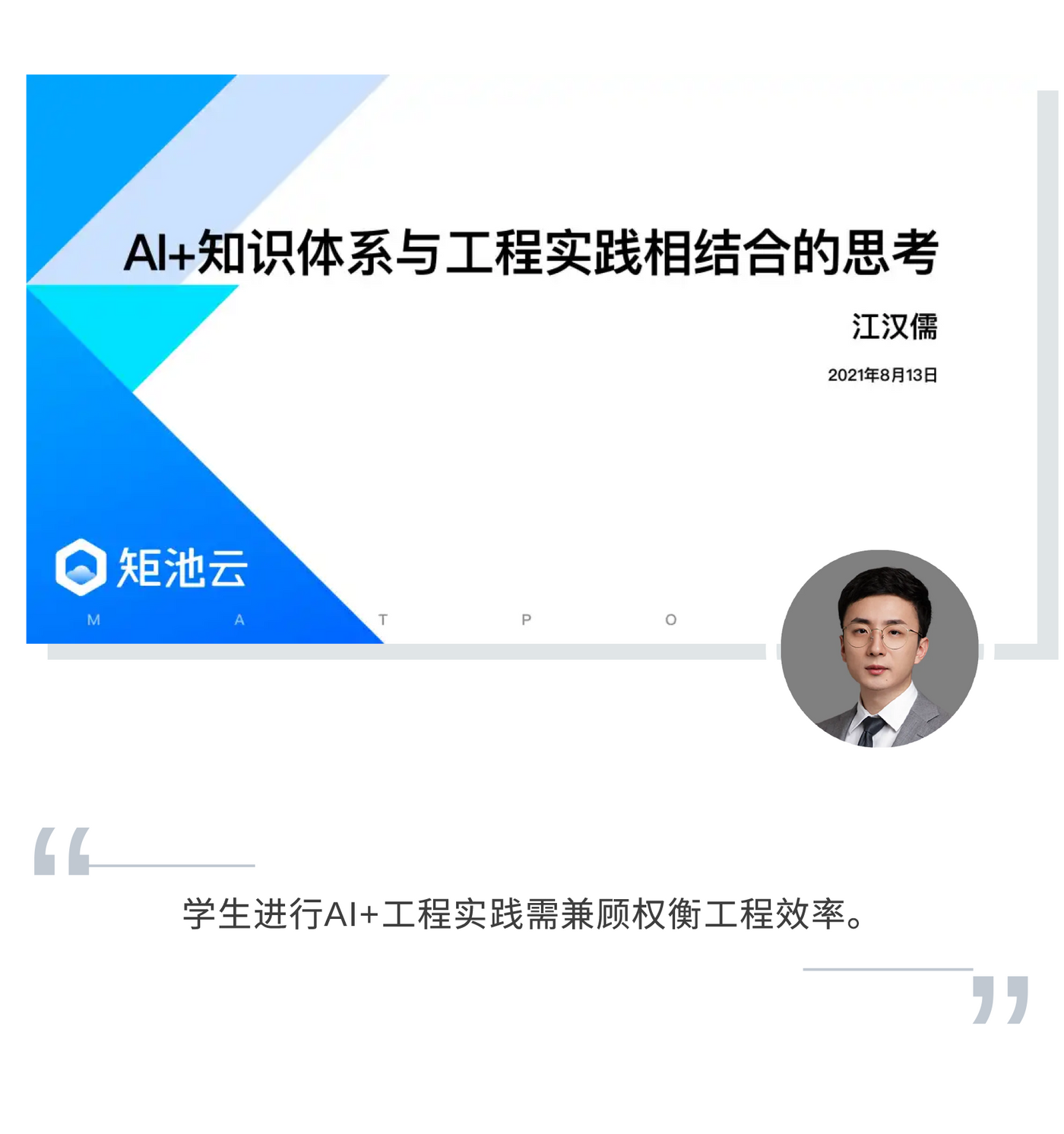
The second guest speaker was Mr. Jiang Hanru, Vice President of Babbitt and the head of Juchi Cloud, who shared the content of "Thinking about the Combination of AI + Knowledge System and Engineering Practice".
Jiang Hanru pointed out that in the process of combining AI with various disciplines, more possibilities and new ideas can be injected into the disciplines, but students with multi-disciplinary backgrounds will encounter a lot of problems in the details of engineering practice in practice. Faced with engineering problems, on the one hand, students can systematically learn computer engineering knowledge to fundamentally improve the efficiency of source design, actual operation, and tracking optimization; on the other hand, they can balance efficiency and results in a large number of engineering practices. From the perspective of the platform, it is possible to optimize and explore some engineering problems with specific rules, with the goal of building a learning framework, and jointly build a knowledge base with the industry, and ultimately provide more innovative power for the industry.
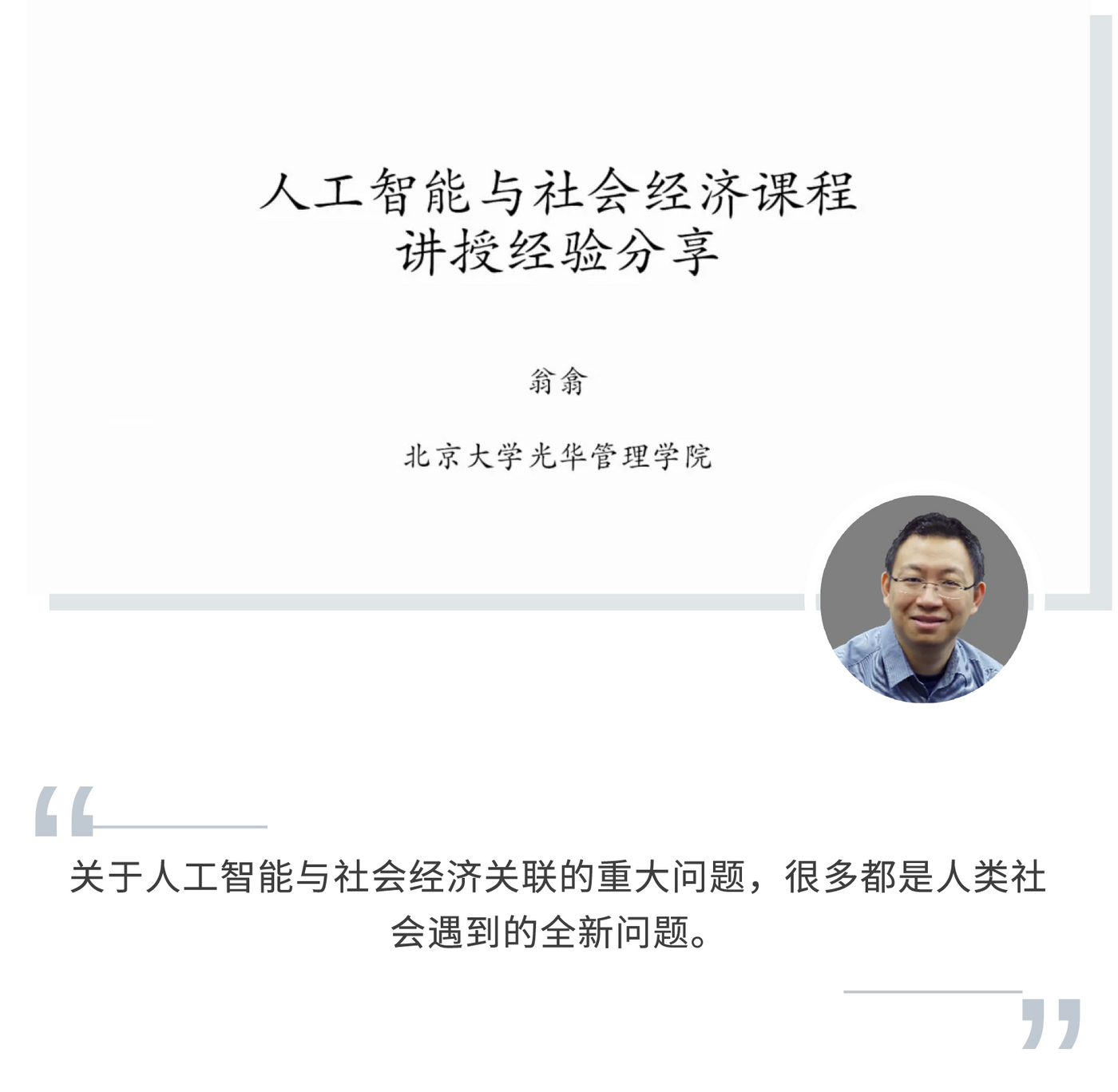
Next, Professor Weng Xi from the Department of Applied Economics, Guanghua School of Management, Peking University, gave a report on the theme of "Sharing Experience in Teaching Artificial Intelligence and Social Economics".
Based on the perspective of economics, Mr. Weng Xi offers an interdisciplinary course on artificial intelligence and social economics. Professor Weng's lectures cover artificial intelligence and macroeconomics, artificial intelligence and market design, artificial intelligence and government policy, etc. The goal of the course is to help students build a thinking framework for artificial intelligence.
He believes that the curriculum should jump out of the traditional knowledge-based curriculum category, and the development of the curriculum is actually a process of joint exploration by teachers and students. He also believes that students need to have a deeper understanding of technology in order to have a better understanding of the combination of industry and technology. Further exploration is needed in the related teaching of AI technology and social economics.
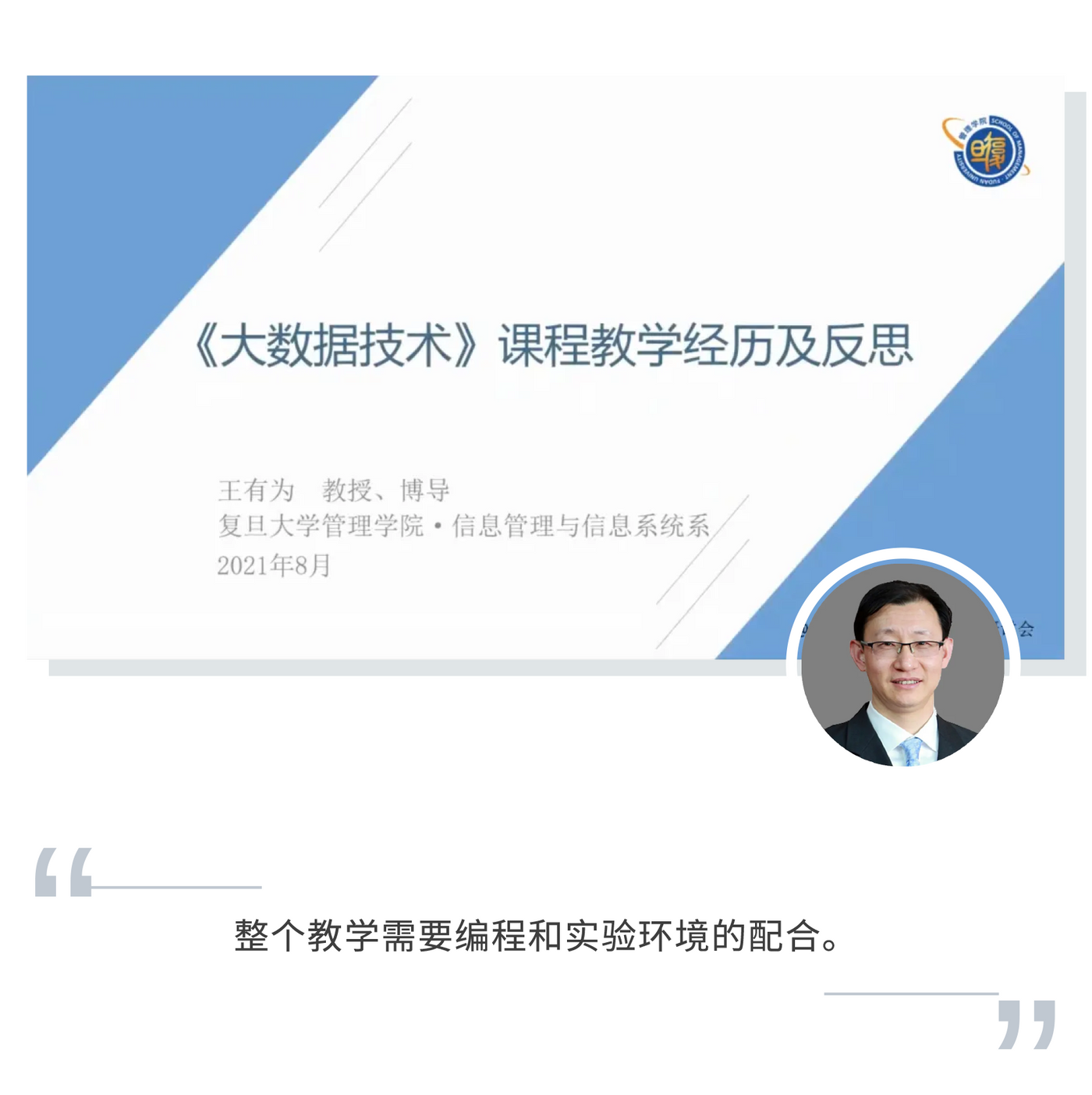
Professor Wang Youwei from the School of Management of Fudan University shared the theme of the report on "Teaching Experience and Reflection on Deep Learning Courses for Master Programs in Applied Statistics". Mr. Wang first mentioned that students from multiple majors gather in the same classroom, and the backgrounds of students include statistics, applied mathematics, business financial engineering, information management, financial management, industrial engineering, electrical engineering and other majors.
Mr. Wang believes that teaching should be practice-oriented, and half of the teaching content is deep learning and half is parallel computing. Teacher Wang Youwei made some reflections on the course construction, the combination of theory and practice, the balance between depth and breadth, the design of group assignments should not only fit the content of the course but also extend, the ratio of group assignments to individual assignments, These four points should be continuously adjusted in the course design according to the situation of the students.
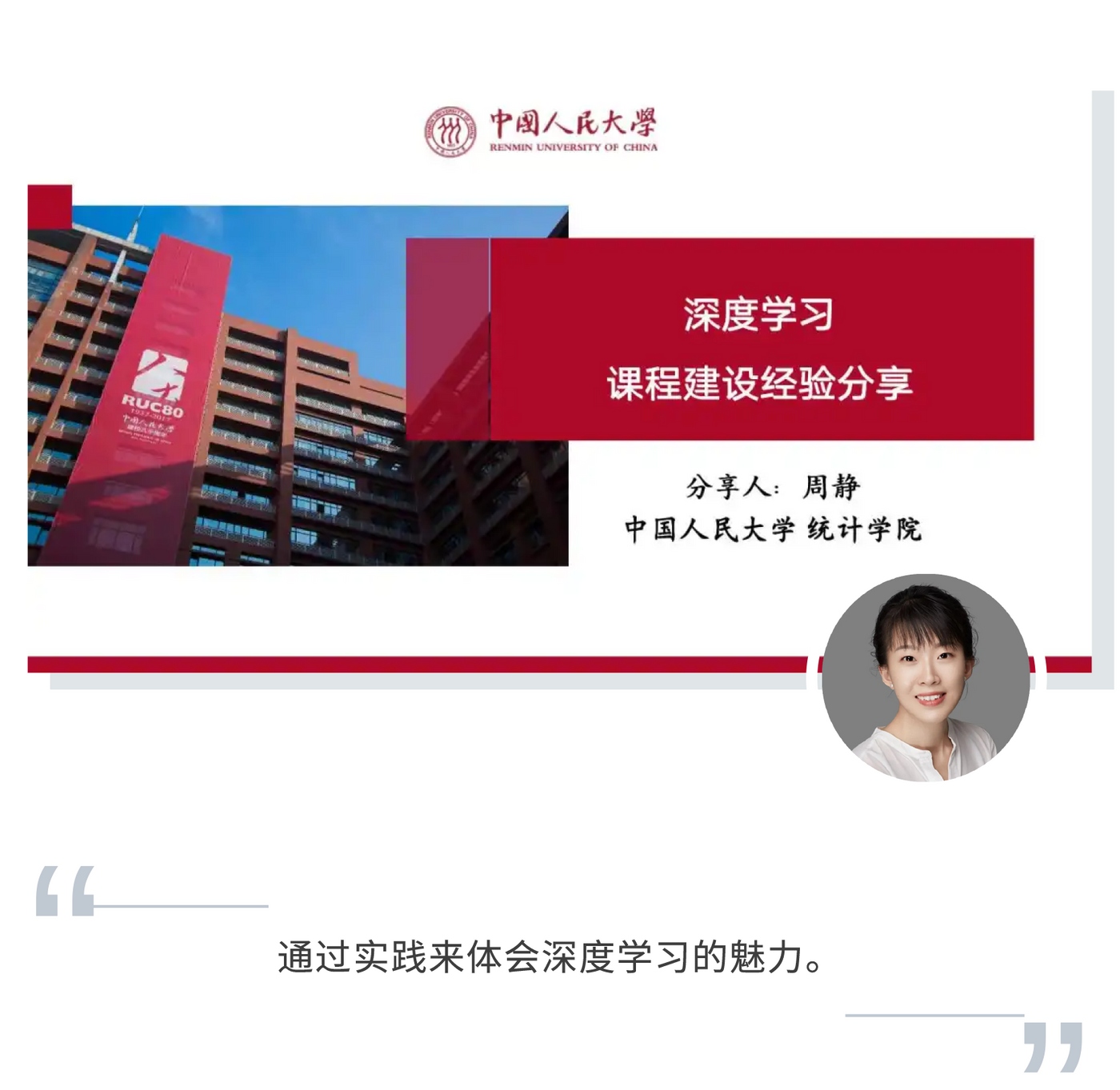
Zhou Jing, associate professor of the School of Statistics, Renmin University of China, shared her "case-driven deep learning course construction experience" in teaching.
Teacher Zhou Jing introduced the experience of setting up AI courses in the School of Statistics of Renmin University of China. The course focuses on the practical part. 50% of the time needs to be practiced on the computer. The homework is based on the case, and the homework grading takes into account the training accuracy of the students' self-training model and the students' thinking depth on the case problems, and the ultimate purpose of the investigation is to strengthen the connection with the actual problems.
Teacher Zhou Jing summarized the teaching concept into three points: 1. Introduce deep learning with a highly complex nonlinear regression analysis method to eliminate students' unfamiliarity; 2. Set correct expectations for students and do not rely too much on deep learning; 3. Curriculum Based on the case, eliminate students' fear of deep learning.
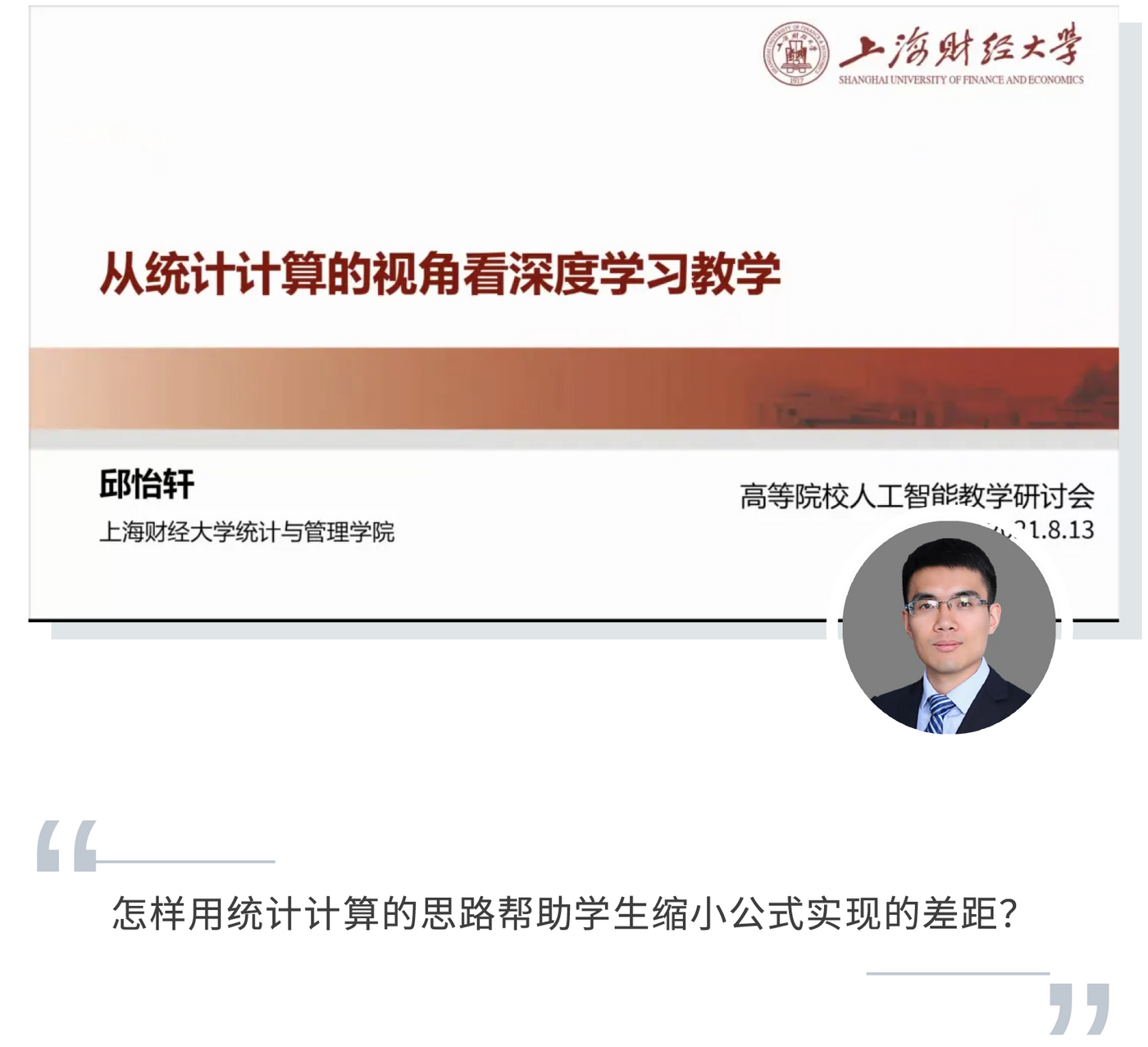
Qiu Yixuan, associate professor of the School of Statistics and Management, Shanghai University of Finance and Economics, discussed the teaching and learning of deep learning from the perspective of statistical computing.
During his teaching, Mr. Qiu realized that the gap between the theory and practice of deep learning methods is very large. Many students have a high degree of mastery of the core ideas of the model, but they will encounter various obstacles in practice. When the model does not yet have a packaged program.
Mr. Qiu cut through several statistical calculation examples, showing the data structure and calculation methods that students need to master in the process from formula to practice, and pointed out that such knowledge points are scattered in the practice process. He believes that after understanding the principles of these statistical calculations, students can be more comfortable in solving new problems.
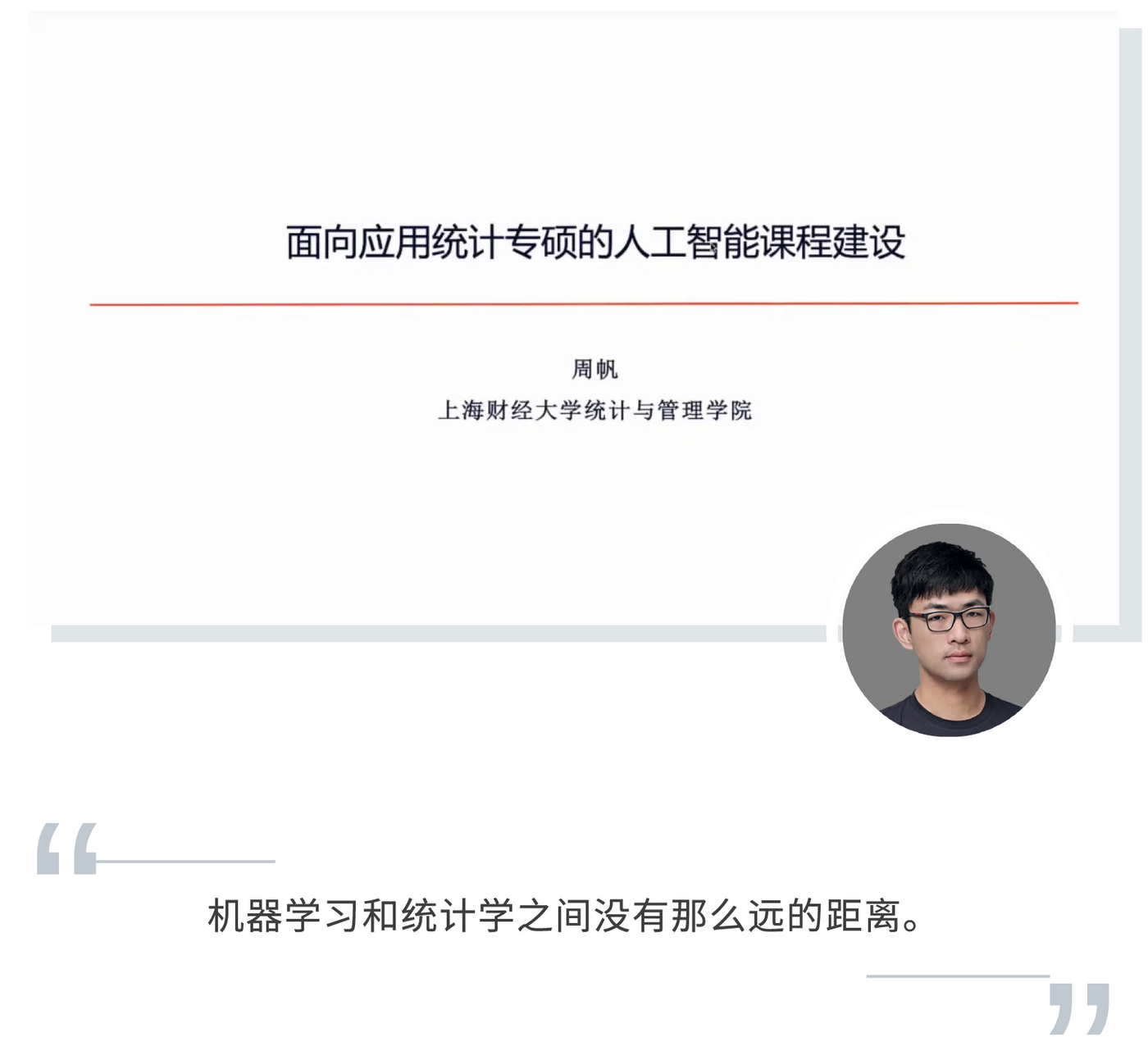
Mr. Zhou Fan, associate professor of the School of Statistics and Management, Shanghai University of Finance and Economics, shared the "Construction and Experience Summary of Artificial Intelligence Courses for Applied Statistics Masters and Masters".
Mr. Zhou Fan first pointed out that the learning goals of the master students are more clear, so two adjustments have been made in the course construction. One is to increase the application of generative adversarial networks, images, natural speech processing, reinforcement learning and other theories in the industry. and landing cases, which will make it easier for students to understand the direction of their future work; the second is to introduce data structures and types for different majors, which can fully strengthen students' ability to solve open problems.
Teacher Zhou also suggested that we should think about making statistics-oriented artificial intelligence courses more statistical characteristics, and how to choose the application-oriented adaptability and characteristics of the courses. These are all worthy of further exploration in the course creation process.
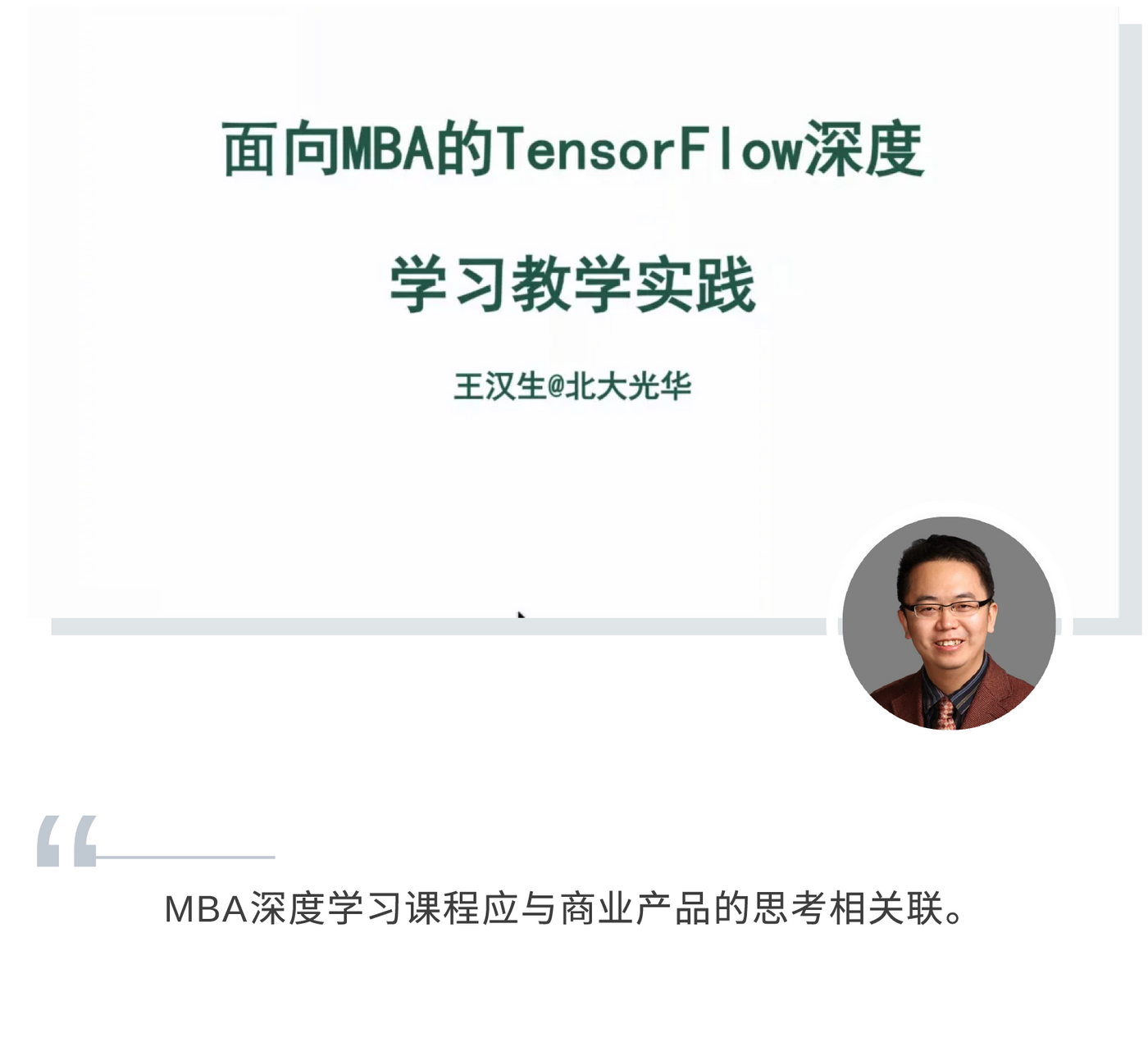
Finally, Professor Wang Hansheng from Peking University Guanghua School of Management shared his thoughts on teaching deep learning courses to MBA students at Guanghua School of Management. Professor Wang Hansheng said that most MBA students hold management positions in enterprises and have more than 4 to 5 years of work experience. Many MBA students do not have a science and engineering background, but still have great enthusiasm for deep learning. On the one hand, they are constantly learning and improving their programming skills, and on the other hand, they are constantly thinking about how to integrate technology with their business lines. .
In order to offer in-depth learning courses under the circumstances of different backgrounds of MBA students, Mr. Wang Hansheng believes that the first thing is to base the courses on business scenarios and oriented to commercial products, which is the overall interest of MBA students; In the course practice, it is not limited to theory and programming itself, but also to realize the "productized imagination" of deep learning in the course.
Before the end of the seminar, Professor Wang Hansheng thanked all the guests, teachers and classmates for their participation, and hoped to discuss closely with the teachers how to make the course of artificial intelligence better, so as to provide better solutions for the country's big data and artificial intelligence strategy. Thanks for your great contributions, this seminar has come to a successful conclusion.
Like my work?
Don't forget to support or like, so I know you are with me..
Comment…